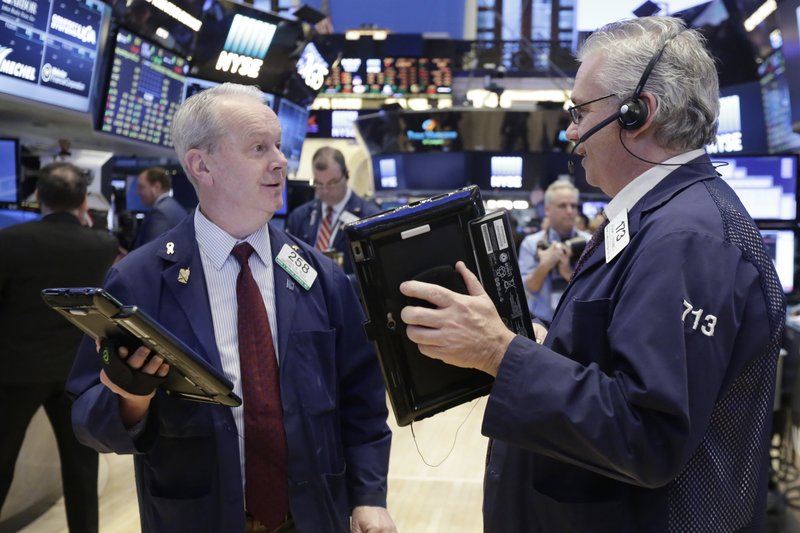NEW YORK -- After a shaky start, U.S. stocks finished mostly higher Wednesday as shares of technology and industrial companies rose. Banks fell with interest rates as the market came off its biggest loss in five months.
The Standard & Poor's 500 index rose 4.43 points, or 0.2 percent, to 2,348.45. Nike dragged down the Dow Jones industrial average, which fell 6.71 points to 20,661.30. The Nasdaq composite rose 27.82 points, or 0.5 percent, to 5,821.64. The Russell 2000 index of smaller companies sank 0.95 point, or 0.1 percent, to 1,345.60.
Stocks started lower, then rallied around midday and wandered between gains and losses for several hours before a late-afternoon push.
Technology companies led the market, as they've done throughout this year. Gains for shipping company FedEx helped take industrial companies upward.
On Tuesday, stocks dropped as Wall Street wondered if key aspects of President Donald Trump's agenda, such as tax cuts and increased infrastructure spending, will be delayed. The Republican-backed American Health Care Act appeared to be in trouble ahead of a House of Representatives vote today.
Terry Simpson, a multiasset strategist for BlackRock, said it's noteworthy that even though the bill's fate is unclear, stocks didn't fall any further on Wednesday.
"The market really wants to believe in the new administration," he said. But if the bill falters today in the House or the Senate later on, investors will have "increased doubt in the ability to pass the pro-growth agenda."
Apple gained $1.58, or 1.1 percent, to $141.42, and Microsoft rose 82 cents, or 1.3 percent, to $65.03 while chipmaker Nvidia added $2.16, or 2 percent, to $108.07. The S&P 500's technology index is up 11 percent in 2017, more than double the gain for the broader S&P 500.
Bond prices rose. The yield on the 10-year Treasury note fell to 2.40 percent from 2.42 percent. Lower bond yields mean lower interest rates, and those reduce the profits banks can make from lending.
Investors snapped up high-dividend utilities and real estate investment trusts as bond yields fell. Exelon picked up 34 cents to $36.30 and Consolidated Edison gained 77 cents, or 1 percent, to $78.11. Utilities are the best-performing part of the S&P 500 over the past month.
Sears said in a regulatory filing that there is "substantial doubt" it will be able to remain in business. The stock has been trading near all-time lows and fell $1.12, or 12.3 percent, to $7.98 Wednesday. The company's real estate investment trust, Seritage, fell 92 cents, or 2.1 percent, to $42.63.
Nike reported slightly disappointing third-quarter sales, and its forecasts for the current period displeased investors as well. Nike's stock fell $4.09, or 7.1 percent, to $53.92, its biggest loss since June 2012.
Oil prices continued to fall after the U.S. government said fuel stockpiles grew more than expected last week. U.S. crude lost 20 cents to $48.04 a barrel in New York. Brent crude, used to price international oils, fell 32 cents to $50.64 a barrel in London.
Business on 03/23/2017
